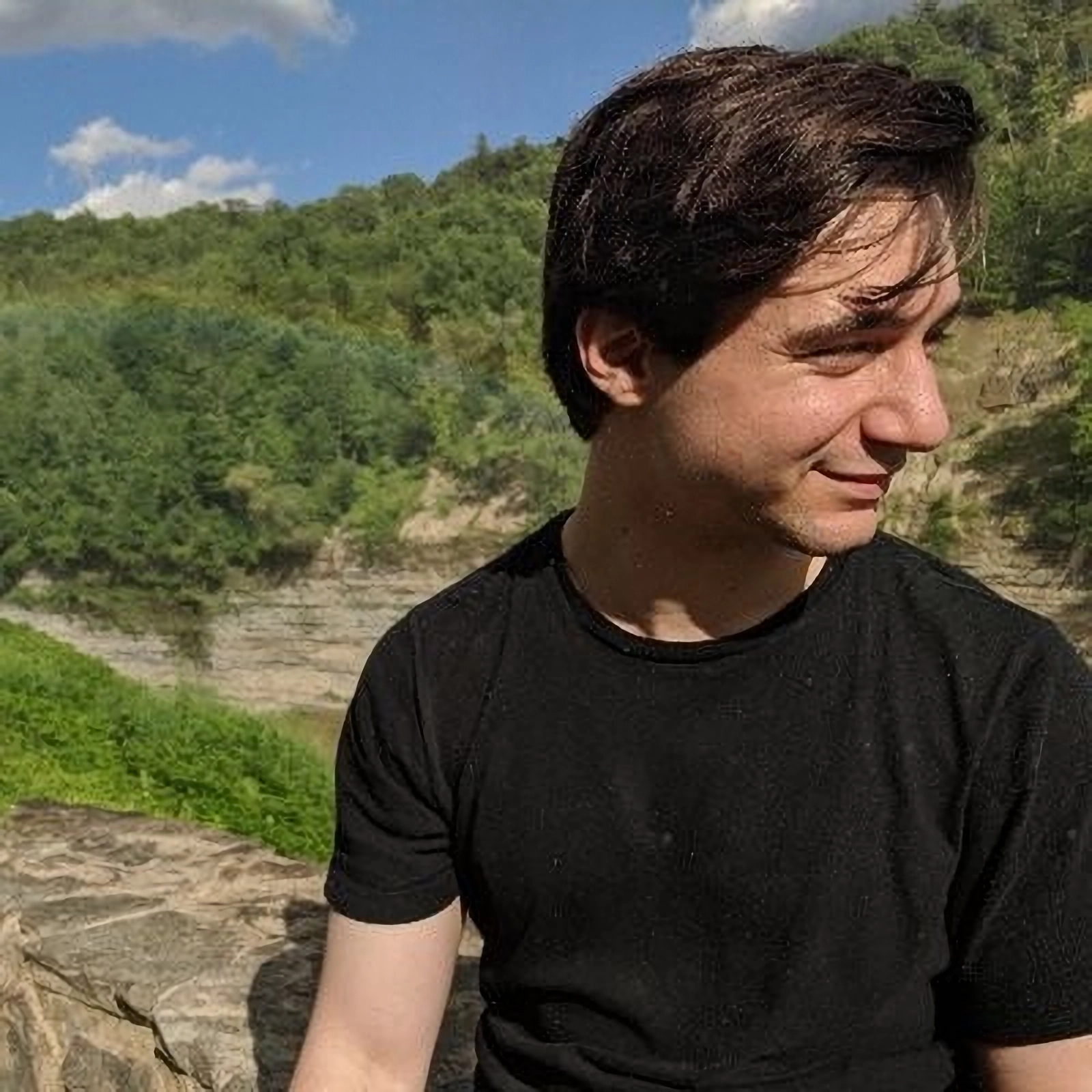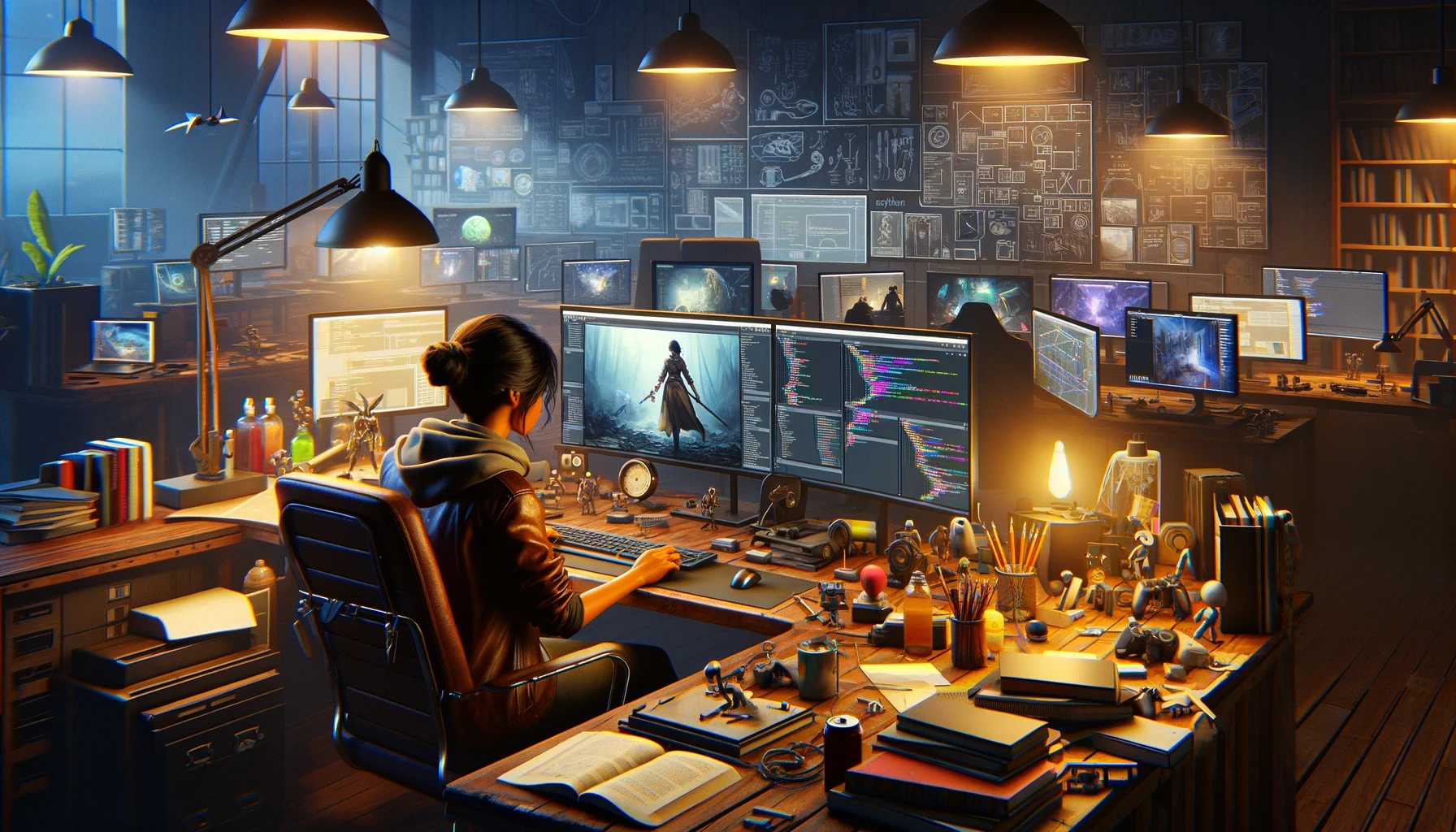This is Part #4 of my interview series on How to Become a Creative Technologist or Creative Tech professional.
I hope for this to be ongoing and to bring value to the community. So far it’s not been straightforward with defining a learning path in creative tech. I learned recently that QA is very important for creative tech projects, physical or not. That’s exciting since I have a pretty good background in QA from other fields already.
I’m going to do my best to include creative tech professionals from a variety of industries so you and I can see the commonalities that make these creative professionals so special.
Many questions and many answers are to be found!
Our next guest is…
Dom Portera

At time of writing, Dom Portera↗ is a Senior Creative Technologist and acts as the lead developer/engineer at Future Colossal↗, an award-winning innovation lab for experiential technologies in advertising, entertainment, & art.
Since 2012, their team comprised of designers, creative technologists, fabricators, and engineers, has been working together to craft unique and playful experiences. They have expertise ranging from architecture and installation art to software development and hardware design.
Dom has had titles such as: Assistant Curator, Lead Instructor, Curriculum Writer and Designer, Paraprofessional Jr. Creative Technologist, Creative Technologist, and now his current role.
He’s a huge open source nerd with an active contribution history on his GitHub↗ on projects like t3↗. He’s also a Godot engine fan.
Industries include: advertising, entertainment, game development open source software, academia.
Trever:
Was CT in advertising/entertainment the only space you considered in terms of CT work? Was creative technologist as a role on your radar early on?
Dom:
It wasn’t! I actually wanted to be a game developer. As you may well know by now, it’s a tough industry to get into and the perks of the job are limited, to say the least. But that’s what I focused on during my time in college and after.
Had you asked me 6 years ago if I’d work in an advertising field I’d have laughed - it’s still not something I would go out of my way to choose, but I’m fortunate that it’s provided a stream of income/clients that ask for development work that is interesting to me.
Trever:
How did you know what to put in your portfolio early on and also now?
Dom:
Early on, my portfolio was of course mostly game related things. As a generalist novice game dev, I made sure to highlight my most impressive/custom work, and sideline older side projects or work that was less directly my own.
So on my website it began with images/gifs of my latest project in development, and beneath that there were some “slides” of other work that I did that was less impressive but showed my breadth.
Nowadays I don’t have a portfolio aside from my GitHub account. I am fortunate enough to have years of experience at Future Colossal (my first industry job!) and as I am not actively job seeking I haven’t put much thought into it.
If I were to create one today, I would highlight my projects with FC and my open source contributions, focusing on aspects I’d want to get a new position in.
Trever:
Did you focus on a core skill and become T shaped or are you more of an M shape? (if that makes sense) Or did you not think about that at all? What was your strategy to skill up technically into the multidisciplinary self you’ve become today?
Dom:
I didn’t focus on a core skill to start - I was very much a game development generalist, and relatively comfortable with the basic features of Unity and C#. I had an understanding of how basic 3D art pipelines worked and whatnot.
Creative Technologists at FC tend to be generalists, but Creative Technologist can mean a lot of different things to basically any company you apply for that lists a position with that name.
I’m not immediately sure what you mean by T vs M shaped, but I get the spirit of the question. At this point, I’d consider myself specialized only in that I specialize in programming. In my time at FC, I’ve become highly skilled at C# and so most of the most advanced programming work goes to me.
Much of what fueled this proficiency is the demands of the job - when things wouldn’t work, projects (and as a result, my life lmfao) became hell.
So I adapted over time to create things that are bulletproof, which naturally lends itself to a more in-depth understanding of C# and computing. In a sense, this trajectory was incidental, but I’m a fan of it and plan on continuing down this path. It’s a superpower!
I also ended up doing a bunch of projects in my spare time - whether it be making small tools for myself and others, or contributing to FOSS projects.
Doing this also upped my game in that I got to see the (relatively high) standards at which the rest of the world operates, and I learned how I could bring these practices to my own work. I also got to learn how C# (and rarely a bit of other languages) work outside of the context of Unity. And I continue to learn on a daily basis!
Trever:
What difficulties did you have as you grew in creative tech and how did you get around them?
Dom:
I’d say my largest persistent difficulty has been due to a lack of understanding of why X system isn’t doing what it should. Pretty predictable answer from a programmer I know, but it’s true!
Early on, development for me would be full of a lot of assumptions. Thoughts like “okay if I do this, this should act this way, and this should respond this way”. I’ve since learned to recognize that if a “should” exists, then I don’t understand how it works and it will more than likely break under conditions I didn’t foresee (or not work at all!).
And so my running philosophy has more or less been that if something can break, it will break. If something should work, it will not work, at least not all the time. The way I continue to get around this is to interrogate the way things work! Intentionally break things or push the limits of what you build, and google/read/GPT the hell out of any questions you have regarding the functionality of any minutae you are uncertain of.
And ask yourself a million questions about what circumstances will break your code, then rewrite it so that no circumstances can break it. The phrasing there is very intentional - sometimes we need to ensure that our larger environment (i.e. game logic, assets, user interactions) suits our code, but it is often much more beneficial to ensure your code can withstand any environment and produce predictable outcomes.
Trever
What key advice would you give yourself if you had another chance to start over to become a creative technologist again?
Dom
The above is certainly advice I would have given myself 5 years ago. But on a higher level, I would have told myself to focus on what I get lost in. In making games, by far the most tedious work for me was 3D work - creating meshes, UV mapping, texturing, etc. But my dumb ass spent most of my time doing just that because I had a vision and wanted to be able to execute it. Conceptually I thought I wanted to do 3D art because of my high-concept ideals, but the work just wasn’t enjoyable to me. As a result, my project was never completed.
Had I took some time to reflect, things may have been different. I would have been able to see the hours I had got lost in some little programming-heavy games I made, the hours I spent on a digital signage project I had to develop all by myself (love college team assignments), etc.
I could have gone into the field so much more prepared for what would ultimately be my career focus, as I wouldn’t have wasted dozens or hundreds of hours working on (or procrastinating) things that didn’t serve me.
So yeah if I have one piece of advice, I’d say stop working for a minute and think about what you actually enjoy doing. Then tailor your portfolio-building efforts and concepts towards that!
Trever
Wow this was so thorough! I really appreciate the details. The mindset around tackling problems sounds super helpful. Definitely seeing a trend of finding what clicks and getting good and fast at that while exploring.
Read the next post in this series soon!
Read the previous post in this series here↗
Check out my other blog posts here↗
